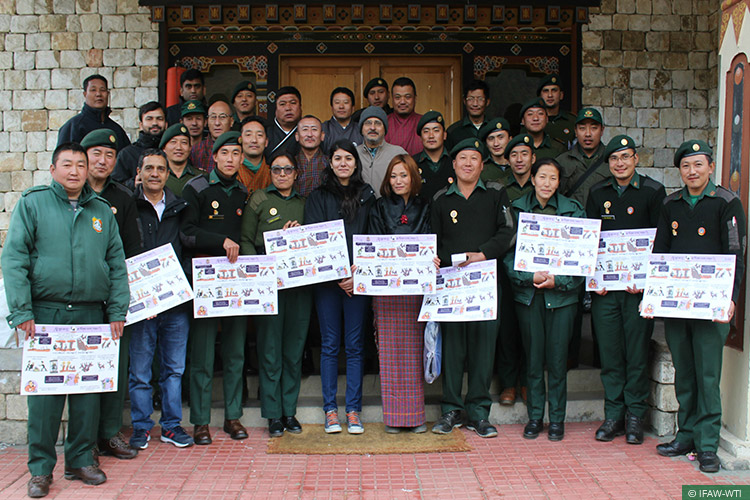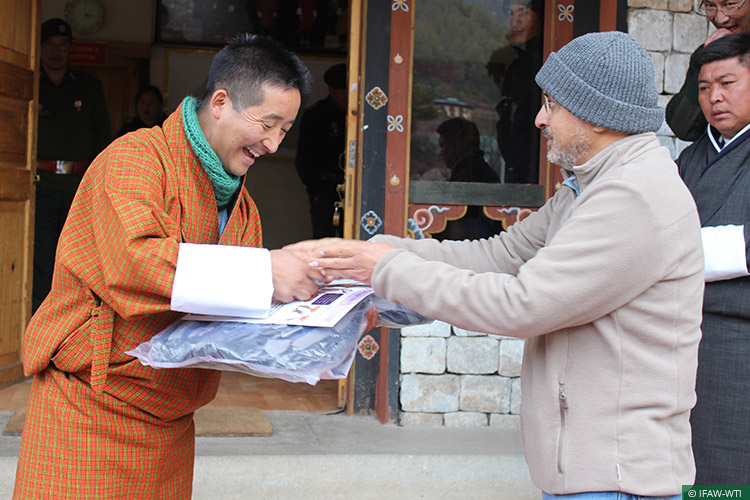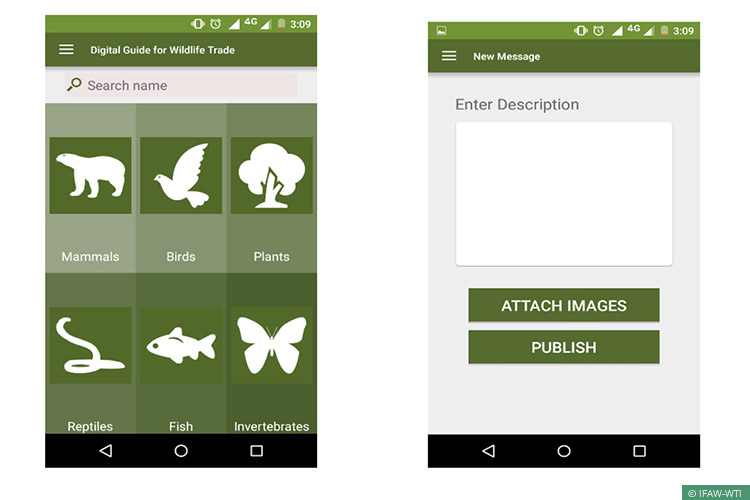 Trainers and trainees during the Wildlife Crime Prevention training workshop in Haa Dzongkhag, Bhutan
Trainers and trainees during the Wildlife Crime Prevention training workshop in Haa Dzongkhag, Bhutan
Haa Dzongkhag, Bhutan, January 31, 2017: A Wildlife Crime Prevention training workshop for frontline staff of the Jigme Khesar Strict Nature Reserve and Haa Territorial Range was conducted yesterday in Haa, Bhutan, by the International Fund for Animal Welfare (IFAW) and Wildlife Trust of India (WTI) in collaboration with Bhutan’s Department of Forests and Park Services (DoFPS). Twenty-seven field personnel participated in the training.
The workshop was one among several such Wildlife Crime Prevention training events that have been organised by IFAW-WTI in Bhutan over the past three years, under an MoU signed with the Government of Bhutan. “The sessions were lively and interactive; the nature of the discussions point to the fact the IFAW-WTI trainings over the last three years have been practical and user oriented. It is significant to note that there has been a drastic fall in the number of poaching cases and wildlife seizures in Bhutan over the last two years”, said WTI’s Aniruddha Mookerjee, Chief Mentor of the training programme.
IFAW-WTI has organised several such Wildlife Crime Prevention training events in Bhutan over the past three years
IFAW-WTI also released a much awaited ‘Wildlife Crime Info’ app during the workshop. The app allows field personnel to access information about species in Bhutan that are most at risk due to the illegal wildlife trade, facilitating the timely identification of wild animals, their parts and derivatives. Further, it has a unique crime reporting system wherein users can enter the details of suspected criminal activity and click a picture; the information is sent along with GPS coordinates to an administrator who can take necessary action at once. “Technology that can provide field personnel improved access to information and efficient reporting mechanisms is of immense benefit in the battle against wildlife crime”, said Prerna Panwar, a WTI Project Officer who has worked on the development of Wildlife Crime Info app.
 To boost their morale, field kits were distributed to trainees at the end of the workshop
To boost their morale, field kits were distributed to trainees at the end of the workshop
IFAW-WTI also released an awareness poster, produced in both English and Dzongkha, encouraging the Bhutanese people to prevent poaching of musk deer. The population of musk deer has declined in the nation in recent years; while the deer are protected under Schedule I of Bhutan’s Forest and Nature Conservation Act of 1995, they are highly threatened due to the demand for their musk pods, which are used in perfumes and in traditional Chinese medicine. IFAW-WTI has previously provided support for measures that specifically target musk deer poaching, including anti-snare walks in Jigme Dorji National Park, where 201 snares were dismantled and a live musk deer rescued and released back to the wild.
At the end of the workshop, Jose Louies, Head of WTI’s Enforcement Assistance and Law division praised the forest department’s firm commitment to preserving Bhutan’s environment and wildlife for coming generations. Chhoglay Namgyel, Head of Bhutan’s Forest Protection and Surveillance Unit (FPSU), expressed his appreciation for IFAW-WTI’s several conservation initiatives in Bhutan. The recent decline in wildlife crime in the country, he felt, was clearly a result of such awareness, training and enforcement activities.
WTI has been conducting Wildlife Crime Prevention training events under its Van Rakshak (Guardians of the Wild) Project since 2001. Over 16,000 frontline forest personnel have been trained in nearly 150 Protected Areas across 14 states in India, and nearly 900 field personnel from 13 protected areas and forest divisions across the border in Bhutan. The Van Rakshak Project follows a multi-pronged strategy with four thrust areas abbreviated as TEAM: Training, Equipping, Awareness and Morale-boosting, to build capacity and strengthen the spirits of frontline forest personnel working in tough field conditions.
 Screenshots from IFAW-WTI’s Wildlife Crime Info app, which gives frontline forest personnel quick access to information and an instant crime reporting mechanism
Screenshots from IFAW-WTI’s Wildlife Crime Info app, which gives frontline forest personnel quick access to information and an instant crime reporting mechanism